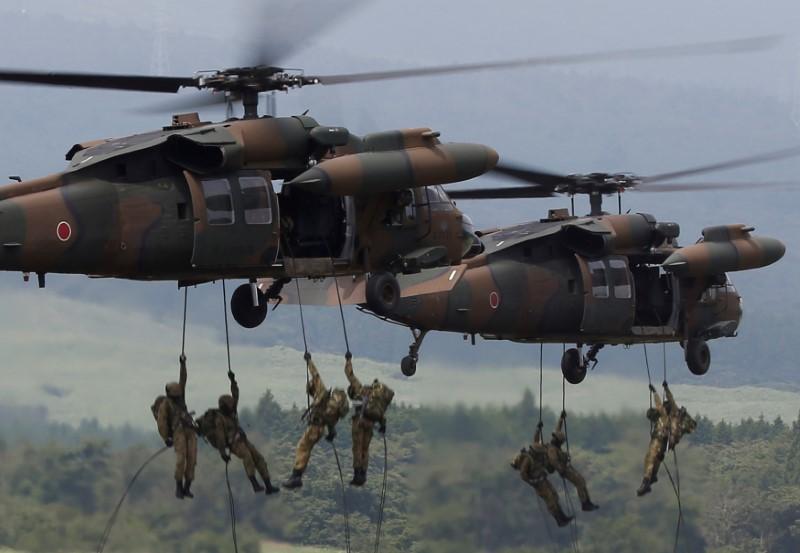TOKYO—Japan’s military looks to raise spending over the next five years in response to security challenges and to narrow Japan’s trade surplus with the United States by buying U.S. equipment, the Nikkei business daily reported on Dec. 8.
The Ministry of Defence looks to spend at least $240 billion (27 trillion yen) between April 2019 and March 2024, with the spending rising an average 1.1 percent per year, exceeding the 0.8 percent average during the five years ending next March, the report said without identifying its sources.





